Police charge peaceful protest: councilman who tries to protect people is severely beaten
The fumes filled the air, and it became asphyxiating. Unable to open my eyes, the burning became unbearable. Temporarily blinded, I heard screams and gunshots around me. Confusion ensued as police took protestors into custody.
- 2 years ago
July 16, 2024
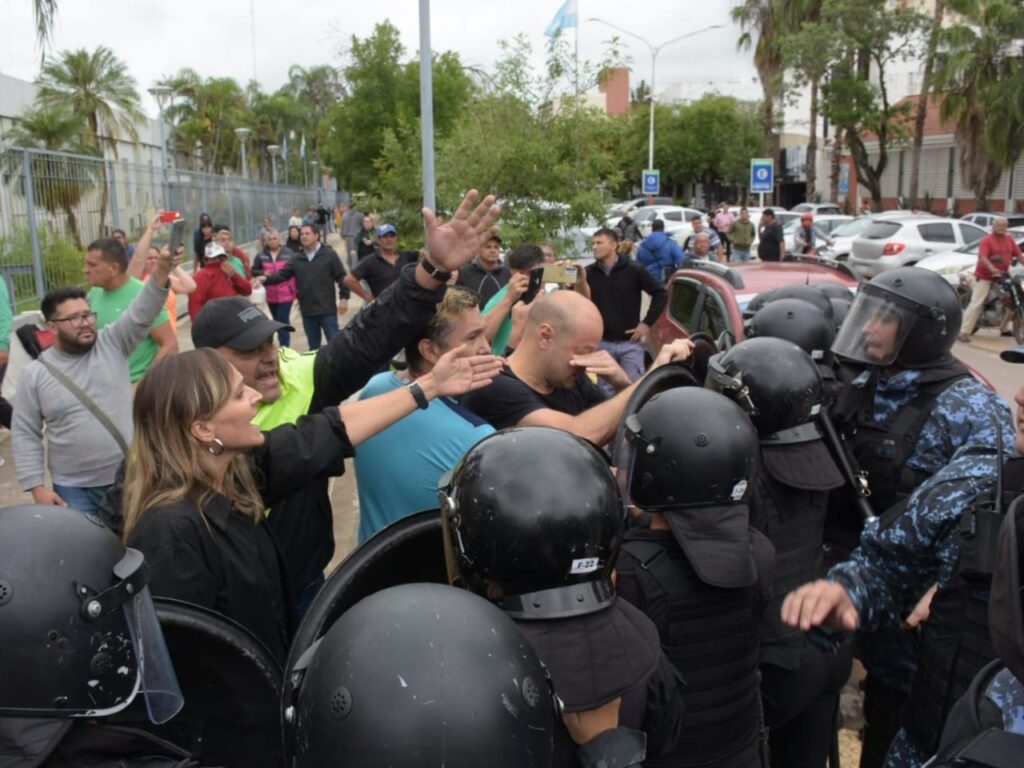
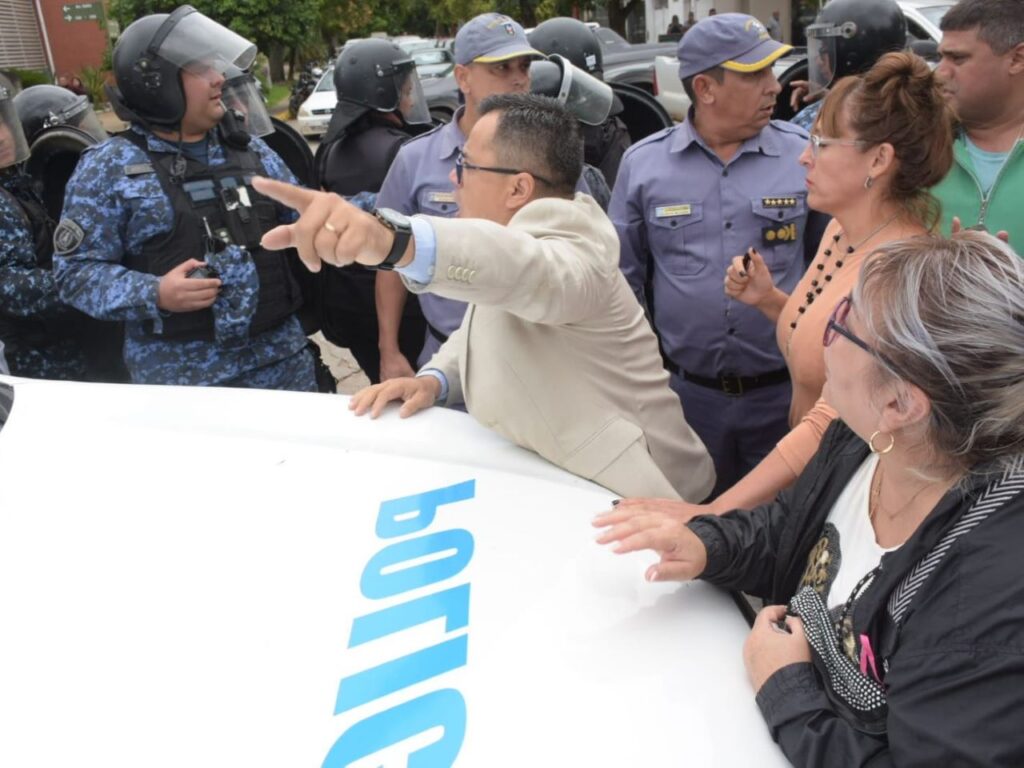
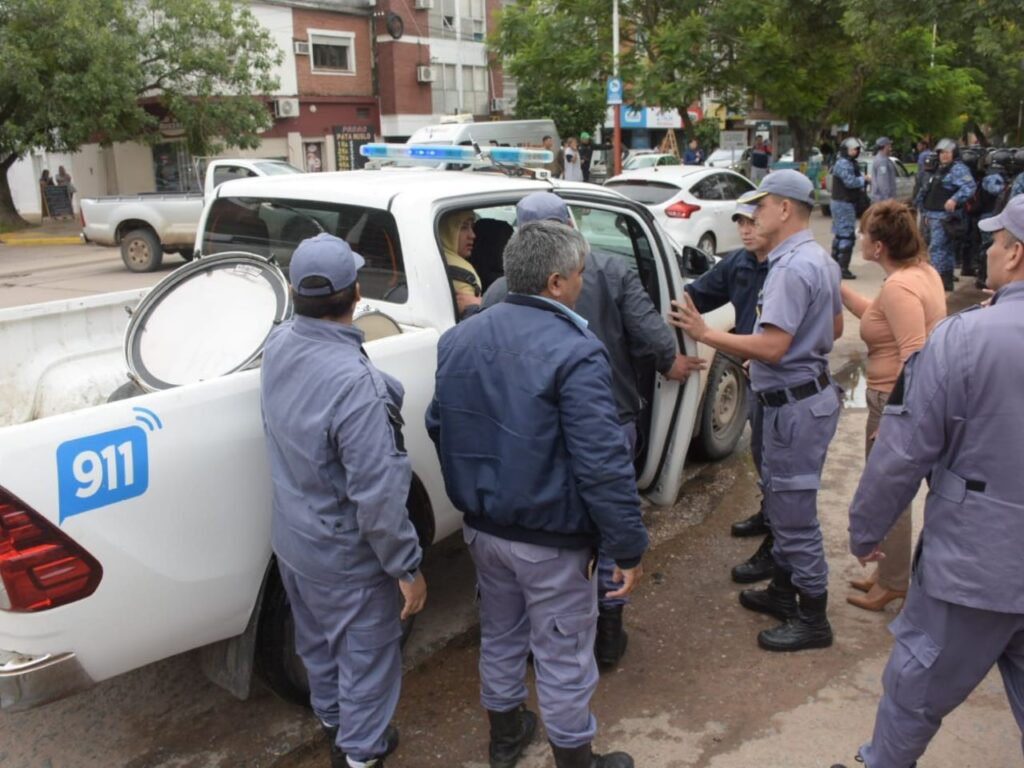
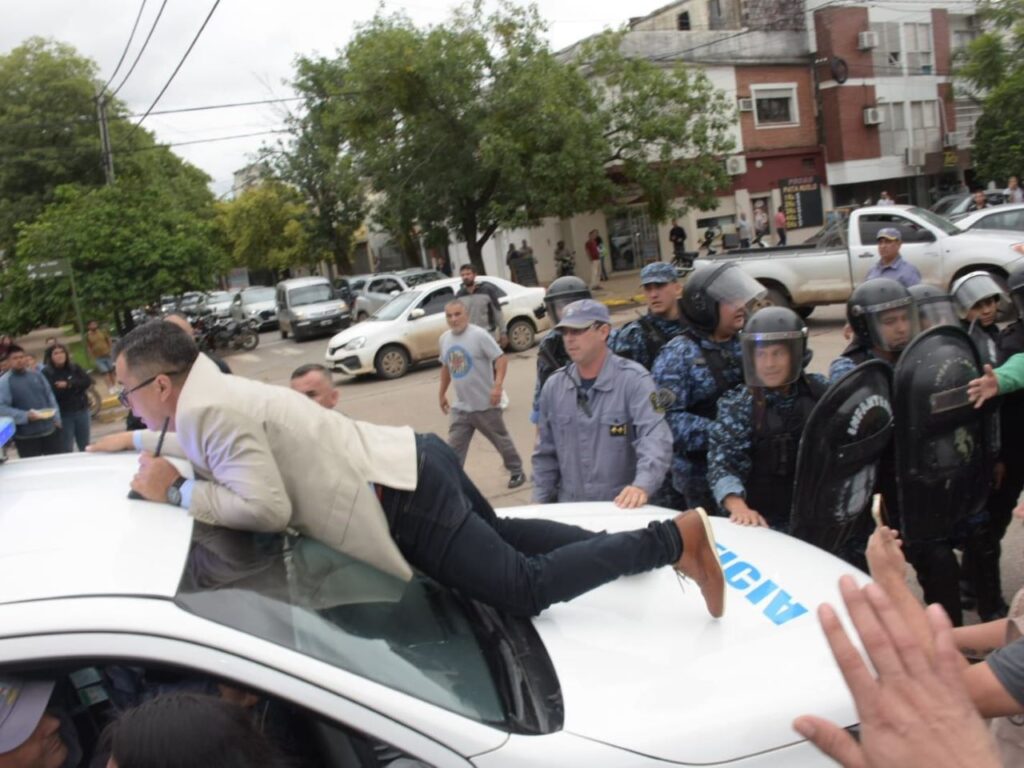
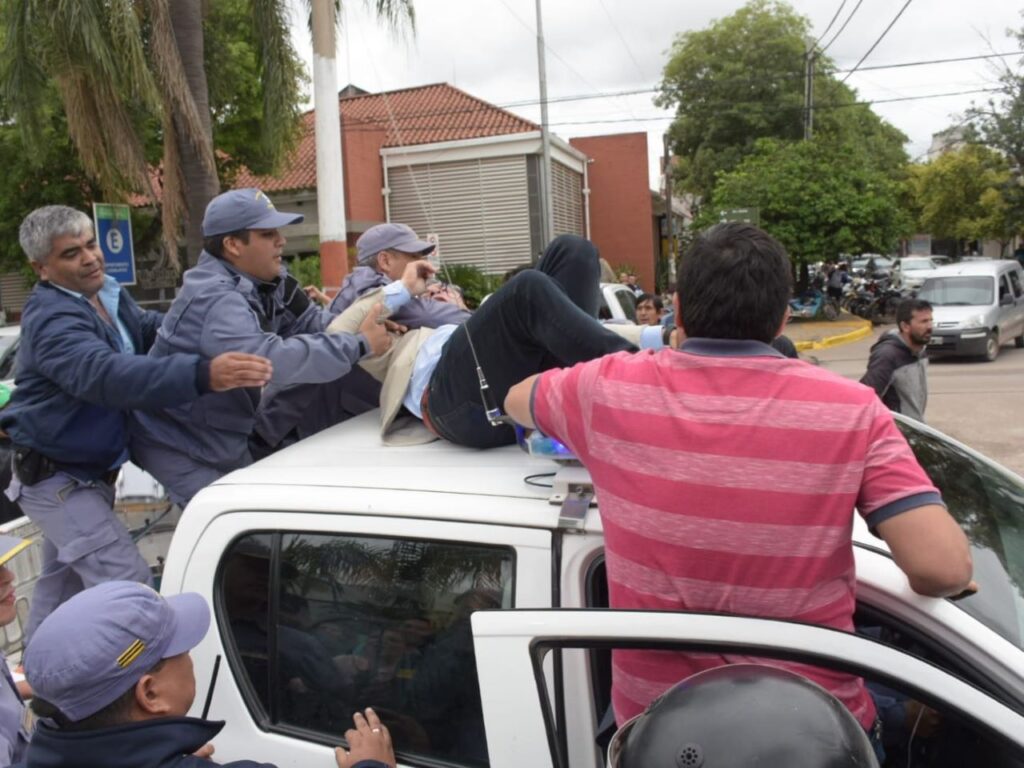
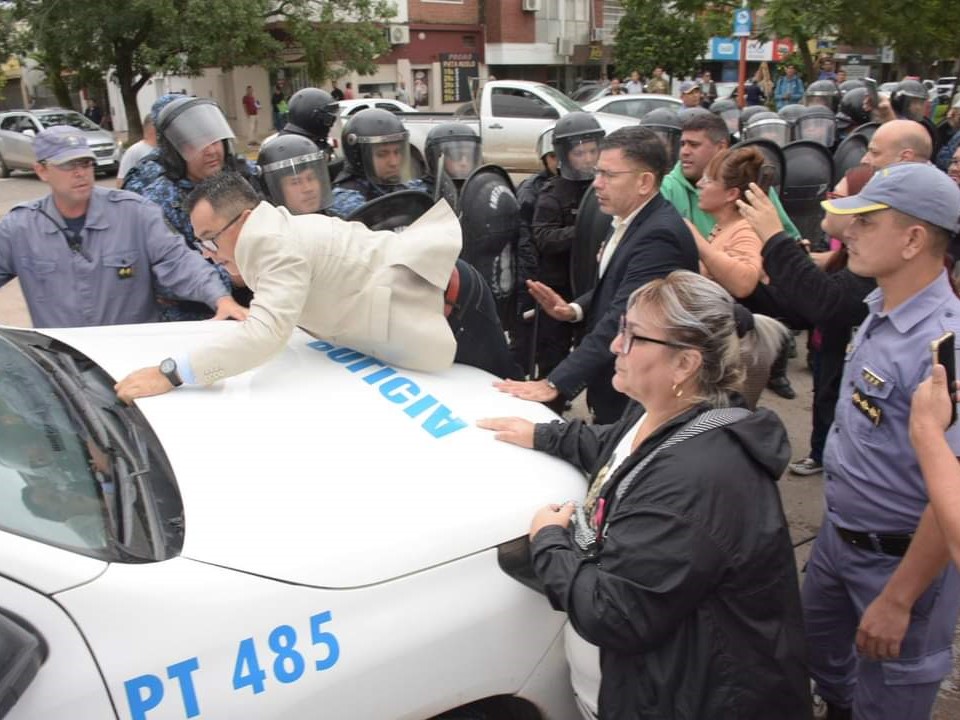
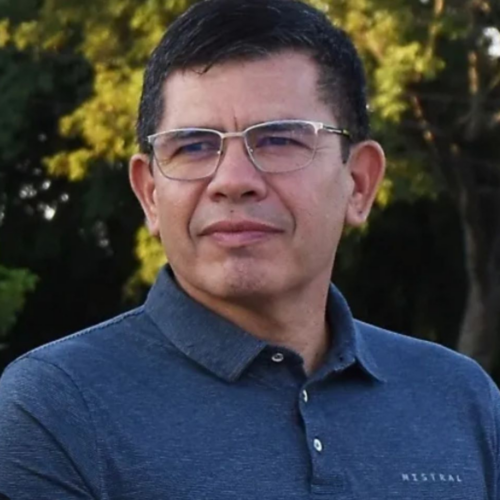
CHACO, Argentina — When the mayor of the city of Chaco announced the dismissal of nearly 500 municipal employees, demonstrators gathered for weeks in peaceful protest. On April 16, 2024, everything changed. As a city councilor, I joined my colleagues in City Hall while a group of people gathered nearby.
During a break, as we entered the intermission room, we learned the situation outside became agitated. Police in Chaco provoked disturbances by acting aggressively and arresting workers protesting for their jobs.
The building had been heavily fenced off, prohibiting vehicular traffic and public access to the entrance. The council unanimously agreed not to start our session, but rather witness the events unfolding outside. We made the request to the Security Committee of the City Council and left the building. When we got outside, we saw chaos unfolding before our eyes.
Read more police brutality stories at Orato World Media.
Councilors confront police brutality at city hall
The scene outside the city building almost looked staged. Only 40 protestors gathered there, holding signs. Yet the response operation headed by the Chief and Deputy Chief of the city police force included over 100 police officers. They arrived better equipped with riot gear than you see with many special forces.
The tension ran high as Councilor Angel Sanchez broke from our group, ran to the police van, and stopped it with his own body. I watched in horror as police beat and pushed protestors with sticks and shields. Of the 11 city councilors who arrived to meet that day, five of us went outside to see the people being taken away.
The police lined up, using their bodies to act as a wall. No one explained what was happening to anyone there. The five of us approached the scene to stand with the people and suddenly faced verbal and physical aggression from the uniformed officers. They seemed to be attempting to provoke a reaction to justify our arrests.
It felt like a violation of our rights. As councilors, we have immunity, but they held no respect for us. As police began repressing the protestors, they pushed us to the ground. They refused to answer questions, leaving a stark silence on the police side of the protest. Instead of using words, they used blows.
The violence escalated, and they started kicking us after we fell. They insulted me, including the head of the police operation himself, as he tried knocking me down with his shield. The operation spread out for more than three blocks becoming huge and disproportionate to the peaceful protests that were originally happening.
Angel Sanchez throws himselft at a can in an attempt to halt police
I looked on while the police savagely beat the legs and arms of one of the councilors next to me. Determined to protect her, several of their strikes landed on me. Chaos erupted everywhere and worsened when I saw a counselor cornered and doused with pepper spray from 10 centimeters away. Shaking like a leaf, he stood still, holding a shield for balance. Then, police personnel disguised in civilian clothes took him away.
The fumes filled the air, and it became asphyxiating. Unable to open my eyes, the burning became unbearable. Temporarily blinded, I heard screams and gunshots around me. Confusion ensued as police took protestors into custody. Using water and a handkerchief, I cleaned my eyes and regained my vision. Just then, Councilor Angel Sanchez broke from our side and ran to the police vehicle. He stood in front of it, stopping it with his body.
As the police loaded protestors into the back of the vehicle, Angel desperately tried to stop them. He shouted for the protestors to get out, insisting they did nothing wrong. Getting no response, he climbed up onto the roof of the vehicle. This triggered an even worse reaction. Police brutally grabbed the councilman by the neck, dragged him along the ground, and threw him into the back of the vehicle. After handcuffing him to another detainee, the vehicle sped off, taking Councilman Sanchez and the other detainees away.
Angel’s ordeal: A harrowing experience of police brutality
Initially, no one knew Angel’s whereabouts. We later learned the police took him to a town about 15 kilometers from Resistencia to ease crowd pressure. Hours passed without updates as we worried. We found out the police held Councilman Sanchez secretly in a police station in Puerto Vilelas.
During the transfer, the police beat Angel severely, leaving him with injuries. Handcuffed to another detainee, he traveled miles in the back of that police vehicle. Angel’s condition began to deteriorate so they placed him, half-conscious, in the third seat.
At the police station, Angel’s condition worsened. His blood pressure rose, and the police took him to the nearest health center. He was so weak when he exited the patrol vehicle that two officers had to carry him to the guardhouse.
Later, they medicated him and took him to the Provincial Prosecutor’s Office to make a statement. Councilman Sanchez was finally released at 10:30 p.m. We stood outside waiting for our colleague and watched as he emerged in a pitiful state. He struggled to walk and had visible injuries on this body. In that moment, I felt an intense mix of pain, anger, and indignation. The security forces in Chaco went too far.
The people have a right to protest. Today, we believe that right is in jeopardy. For the people to continue their efforts to peacefully demonstrate against the government, it requires clear strategies and close monitoring. Events like what happened in Chaco in 2024 must never happen again. Actions like these create unfair limitations on peaceful protest – a right that guarantees democracy.


































































































































































































































































































































































































































































